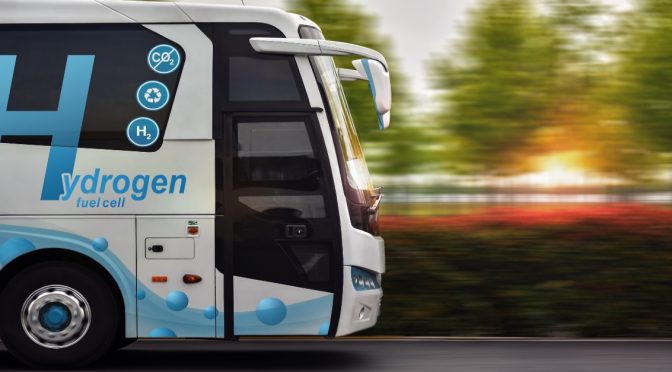In a week in which Airbus, the world’s second largest aviation manufacturer, revealed prototypes for a hydrogen fuel passenger aircraft and a timeline for production to 2035, the International Renewable Energy Agency (IRENA) gathered global public and industry stakeholders to discuss how green hydrogen can advance towards cost competitiveness.
At the second meeting of the Collaborative Framework on Green Hydrogen, Members acknowledged the key role green hydrogen can play in facilitating a low-carbon transition, including the importance of serving as a clean fuel for heavy transportation and industry, among others.
This discussion followed the first meeting of the Collaborative Framework on Green Hydrogen, held on 18 June 2020, which emphasized the need to broaden external stakeholder participation, to build a deeper understanding of industry barriers and opportunities, and to form more cohesive and well-informed perspectives.
Welcoming new participants to the dialogue, the Hydrogen Council and the International Partnerships for Hydrogen for Fuel Cells in the Economy (IPHE), IRENA Director-General Francesco La Camera, noted the importance of building cooperation and support among the hydrogen community to mainstream green hydrogen in policy and investment decision making.
Investments in green hydrogen are undoubtedly growing and leading players made calls for enhanced cooperation to complement national efforts. Of Germany’s EUR 9 billion of investment earmarked for green hydrogen production, close to a quarter of it will support international cooperation, recognizing the potential need to import the fuel in large quantities as national policies stimulate demand.
Tim Karlsson, Executive Director of the IPHE highlighted that meaningful political and physical momentum is present today. “Hydrogen and fuel cells are a reality today,” he noted. “There is much more activity taking place than people realise,” pointing to the presence of more than 8,000 hydrogen cars on US roads. “The key question is how do we scale up the production, transportation, storage and use of hydrogen – especially clean hydrogen,” he said.
Economies of scale need standardisation according to H.E. Franz Michael Skjold Mellbin, Denmark’s Ambassador to the UAE and Permanent Representative to IRENA. He also stressed the importance of maintaining a strong global commitment to green hydrogen within the climate context. “We should avoid the potential of growing a green and a black hydrogen market in parallel,” he highlighted, saying production pathways could be decided by competing prices.
The cost reductions needed to make hydrogen competitive with fossil fuels remain contingent upon rapid and significant scale-up of its production. “By 2050, hydrogen could be a USD 2.5 trillion industry with a total workforce of 30 million people,” said Michele Azalbert, representing the Hydrogen Council.
Ms. Azalbert, who is also the CEO of Engie’s hydrogen business unit, said hydrogen will not only help to meet climate goals but will also contribute to realizing a more resilient and sustainable energy system.
Anita Hankey, Acting Head of Renewable Energy at the Ministry of Energy in Trinidad and Tobago said hydrogen continues to gather support in Trinidad – a country that remains a gas-based economy. Trinidad and Tobago, Ms. Hankey noted, is firmly committed to exploring the diversification opportunities presented by the emerging technology.
Costa Rica too believes the clean fuel presents a viable and attractive opportunity. Deputy Minister of Environment and Energy, H.E. Rolando Castro Costa said his country’s near 100 per cent renewable power system and the availability of water offer the prospect for Costa Rica to become an active participant in the green hydrogen economy.
On the basis of proposals by IRENA, Members agreed on the modalities for future meetings under the framework, including the selection of Morocco and the European Union as facilitator and co-facilitator of the future framework meetings.


